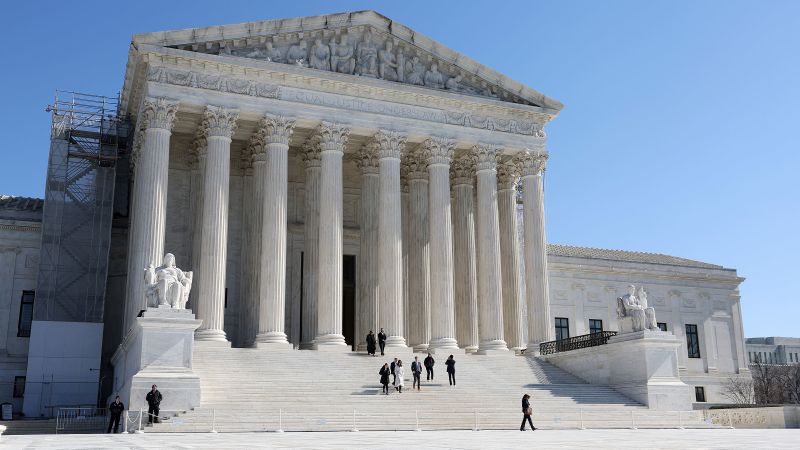
Virginia asks US Supreme Court to permit voter roll purge aimed at suspected noncitizens
CNN
Virginia Republican officials asked the US Supreme Court on Monday to allow the state to implement a program to remove suspected noncitizens from the voter rolls in one of the first major voting cases to reach the high court ahead of next week’s presidential election.
Virginia Republican officials asked the US Supreme Court on Monday to allow the state to implement a program to remove suspected noncitizens from the voter rolls, in one of the first major voting cases to reach the high court ahead of next week’s presidential election. The appeal has political salience as former President Donald Trump and other Republicans have seized on the case as part of a false narrative of widespread voting by people in the country illegally. It is one of several election-related suits that have already landed at the Supreme Court or that are expected to arrive in the final days before the November 5 election. Those cases are arriving amid an incredibly close contest between Trump and Vice President Kamala Harris and as polls show widespread distrust in the Supreme Court. The election, already underway as millions of Americans cast early votes, has prompted a flood of litigation. But a new CNN poll conducted by SSRS found that a 56% of registered voters say they have just some or no trust in the Supreme Court to make the right decisions on any legal cases relating to the contest. There’s a substantial political split in those numbers, with Trump supporters roughly twice as likely as Harris supporters to express at least a moderate amount of trust in the court. Given the relatively small number of voters involved in the Virginia case and the fact that the state has reliably supported Democratic presidential nominees for the past several elections, the outcome is unlikely to have an impact on the race. But Trump has already repeatedly touted the case on social media, at one point describing a lower court’s ruling against the program as “election interference.”













